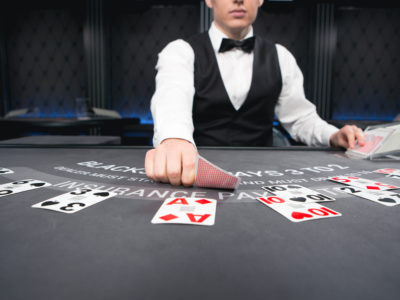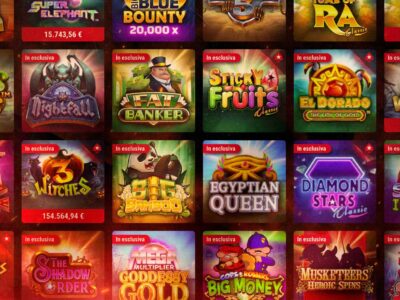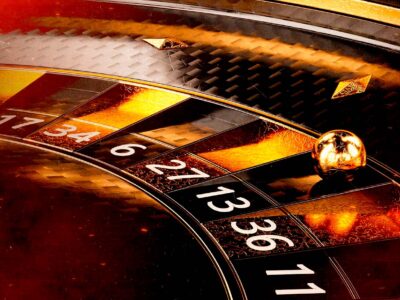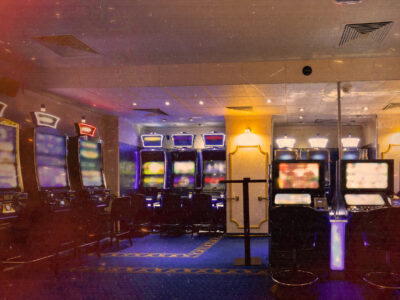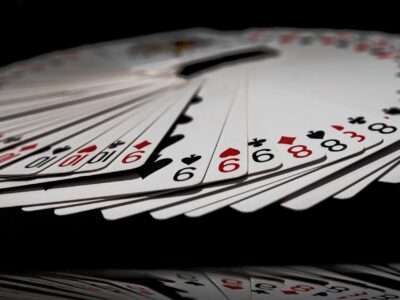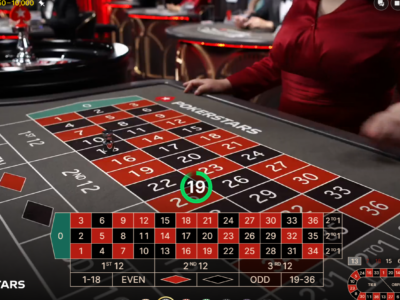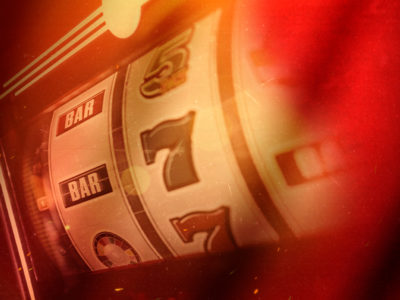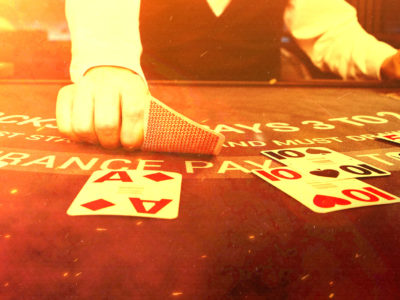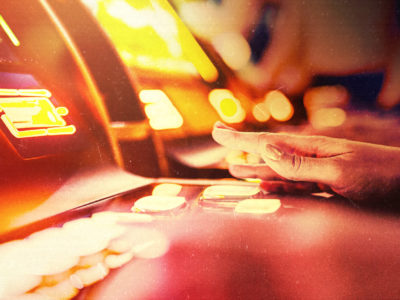Chances are that if you’re reading this then your favourite card game is poker, and you probably also agree that it’s not a gambling game at all. But unfortunately for us, most governments across the world bracket poker with other gambling pursuits — and, let’s face it, we’ve all seen enough bad beats playing in our local poker tournaments to know that you do sometimes just have to take your chances in this game. Luck will always play its part.
But, in truth, sometimes pure gambling can also be fun — and certainly millions of people across the world would agree. While most people think of the mega-casinos in Las Vegas or Macau when anybody mentions the word “gambling”, there are heaps of different gambling games available to players in all corners of the world, from Australia to Zambia, the Bahamas to Zimbabwe.
Here’s a quick look at some of the gambling traditions across the globe, starting with the strangest country of all: the past.
ANCIENT TRADITIONS
There’s no clearly identifiable moment in history when the notion of gambling was invented, but most historians suggest that people have been taking risks in the hope of scoring big rewards pretty much since the dawn of time. David G. Schwartz, an academic at the University of Nevada, Las Vegas, titled his exhaustive study of the history of gambling Roll The Bones for good reason: there is evidence that early humans used to throw astragali, or the huckle-bones of sheep, and perhaps make some kind of decision based on which of the four uneven sides they would land. It’s only a small step from here, on an evolutionary scale, to imagine a very early dice game. Examples of astragali have been found on archaeological sites dating from 3,000 B.C.
In Poker and Pop Culture, Martin Harris cites fellow historian Stewart Culin in tracing the origins of playing cards to the divinatory practice of throwing marked feathered arrows — known as “belomancy” — into the sky by the ancient the Babylonians, Scythians, and Greeks, who would plot a course of action based on where the gods blew the arrows. “Culin describes Korean arrows of the sixth century A.D. evolving a few centuries later into htou-tjyen or “fighting tablets” — that is, long (eight inches) and narrow (a quarter-inch) strips of paper with uniform designs on one side and numerals and early suits on the other,” Harris writes. “A pack consisted of anywhere from 40 to 60 cards, some with pictures of arrow feathers on their backs.” Designs expanded and changed as cards swept through the royal courts of Europe, and people invented numerous games with which to use them.GLOBAL OVERVIEW
According to the most recent statistics on Casino.org, around 26 percent of the global population gambles in one form or another, be it in casinos, on lotteries, on slot machines in pubs, playing fantasy sports or more regular sports betting. In 2016, the global gambling market was closing in on $400 billion, with Australians wagering the most per person. The average Aussie gambled $916 in 2014, a reflection of the country’s penchant for “pokies”, the Australian term for slot machines, which can be found in numerous licensed premises across the country.
There are only a little more than 25 million people in Australia, but there are nearly 1.5 billion in China, which goes some way to explaining why Macau comes out on top for gambling destinations, listed by revenue. An average visitor to Macau spends $1,354 on gambling, the most of anywhere in the world. (Gambling is illegal in mainland China, but Macau is a Special Administrative Zone and is almost entirely dependent on its gambling industry.)
GAMBLING IN ASIA
Poker is quickly gaining popularity across Asia (we predicted more major tournaments will be won by Asian players in our survey of expected trends for 2020) but the king of card games in Macau and beyond is still baccarat. This simple player vs. banker game, where you can back either hand, is incredibly simple to learn and requires no decision-making, playing into many gamblers’ desire for lady luck to be the dominant factor. At its most basic, the house edge is also minimal, meaning the sessions can extend to great length. But make no mistake, vast sums of money change hands as the baccarat tables as it’s the game favoured by the highest of high rollers. In fact, according to Baccarat Guru, the game was originally played only among the high rollers, with the rules guarded from the common populace.

Poker is increasingly popular among Asian players
The most popular dice game in Asia is sic bo — but don’t expect the kind of rowdy scenes that you see at a craps table in Las Vegas. In sic bo, the dealer rolls three dice, usually on a small glass-covered podium, and players can make wagers based on the outcome of the roll. There are numerous different bets offered on patterned felt that in some ways resembles a roulette table. The most common bets — like red or black in roulette — are “small” or “big”, where the player predicts a combined total of less than 11 or more than 10, respectively. But beware: if the three dice all show the same number, you lose.
Macau is the obvious hotspot for gamblers in Asia, with the mega casinos on the Cotai Strip, as well as in the downtown area, every bit as vast and glitzy as their Las Vegas counterparts. But destinations such as Jeju, an island off the southern tip of South Korea, and Manila, capital of the Philippines, are also emerging as much visited gambling destinations.
GAMBLING IN EUROPE
American visitors to the UK are always surprised to see the number of betting shops along an average British high street, offering the chance for anybody over 18 to walk in and place a sports bet. That’s the kind of thing that is outlawed in many American states and confined to casinos elsewhere. But horse racing has a very long history in the UK — likely dating to the 12th century — and private contests between noblemen soon started attracting wagers, initially at the tracks themselves.
In 1960, a government act permitted off-track betting and bookmakers offices opened up and down the country. They expanded their offerings from horse racing to greyhound racing and then all other sports. These days, they likely also contain slot machines and video casino games — a controversial measure that has recently attracted further government intervention to cap the limits players are allowed to bet.But this thirst for betting is not confined to the UK, and neither is it even confined to sports. Harris makes reference to an Italian mathematician and physician named Gerolamo Cardano who discussed cultural attitudes towards gambling in the 1560s, comparing dice games with card games and indicating how widespread both were. By the end of the 16th century, “betting on the outcomes of papal elections had become prevalent enough for Pope Gregory XIV to ban the practice in 1591,” Harris writes. “In Italy the emergence of the wildly popular “ridotti” gambling dens featured card games like basset and faro. Legislation to prohibit them proved ineffective, and in 1638 Venice authorities gave in and opened Il Ridotto, a government-sanctioned gambling house, essentially history’s first casino.”
Many countries in Europe still have casinos and card clubs, as well as betting shops and lotteries. The EuroMillions lottery is played across nine European countries and has a minimum jackpot of €17 million ($18.97 million). If it is not claimed, it rolls over, and then again and again and again until the numbers eventually come up. The biggest single win came in October 2019, when one lucky ticket scored more than £170 million ($221 million).
In the UK, where the national lottery has now been running for 25 years, more than £40 billion has been donated for “good causes” as a byproduct of people buying a ticket each week and hoping to hit the big time.
GAMBLING IN THE USA
You only need look around the average American casino to see what the most popular games are for players. Slot machines take up by far the largest floor areas in casinos, and they generate by far the most revenue. In some American states, more than 90 percent of casino revenue comes from slot machines, according to the American Gaming Association, and even in Nevada, the capital of gambling in the United States and where there are more games to choose from than anywhere else, it’s usually more than 60 percent.But sports play a huge part in the average American household, and friends and families frequently come together to organise fantasy leagues, brackets and pools based on any number of sports. Research in 2018 showed than an estimated 54 million people, or nearly one-quarter of American adults, participated in some kind of pool with family, friends or work colleagues, with a total spend of $18 billion.
Approximately 24 million people filled out nearly 60 million pool entries for NCAA basketball alone, wagering more than $2.6 billion on entry fees. That’s significantly more than the number of people who bet at sports books on the NFL. Ahead of the 2019 football season, 15 percent of American adults (38.1 million) said they would be betting on the NFL that year.
Back to TopView Other Blogs













